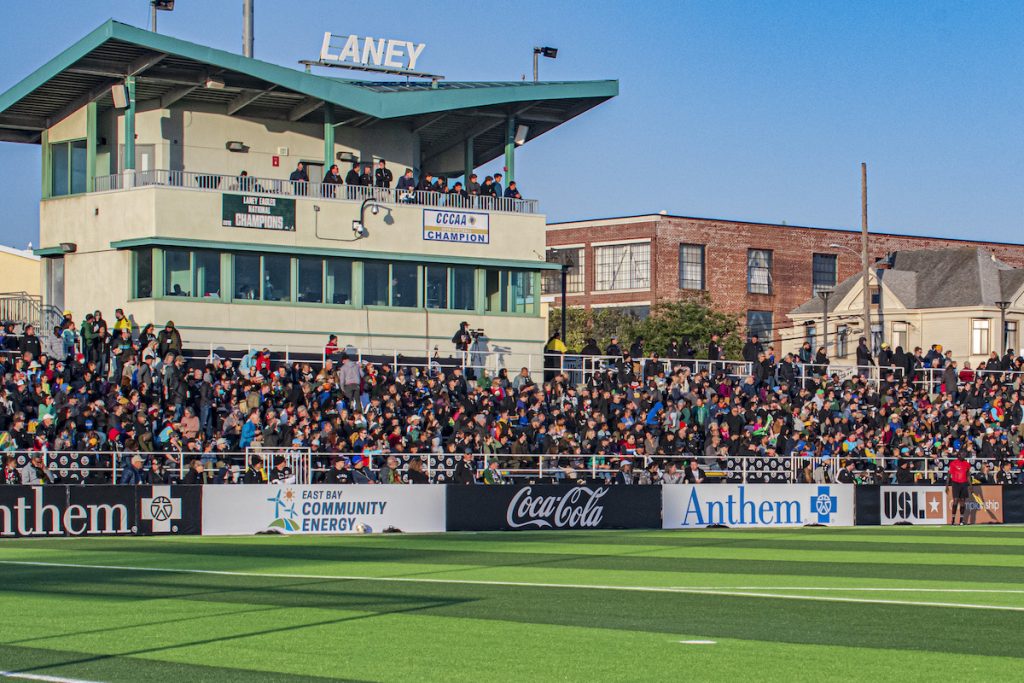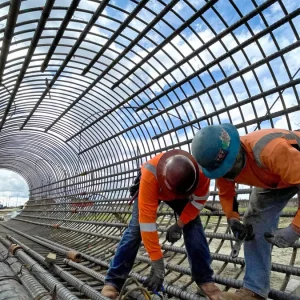
Robert Baker tells Oakland voices, “When I think about Oakland, I think about community pride and activism. I see people who really care and are protective of Oakland and its culture and reputation.”
There was a period of Oakland’s history where this valuable culture could be observed in the Raiders jerseys, Warriors hats, and Oakland Athletics (A’s) sweatshirts sported by numerous members of Oakland’s vibrant fanbase. Although this phenomenon has not completely disappeared, the community’s collectivism around supporting their professional sports programs can be expected to dissipate with the departure of the Oakland A’s, the last major sports team left in Oakland. On the day of their last game, fans were witnessed crying, expressing feelings of outrage, and even some dressed in funeral attire. The departure of the A’s marked the loss of this community’s last major professional sports program, given the Raiders and Warriors have both relocated within the last five years. This broadly unpopular decision wasn’t made on a whim—it was a decision relating to numerous issues with Oakland’s economic situation, and decisions made by A’s ownership. The main question: Are professional sports teams worth their economic implications? And to what length, given the importance these programs have, on community ties?
Oakland has a major budget deficit. Although this problem plagues countless cities across California and the United States, Oakland’s specific structural problems with their budget have exacerbated their financial crisis. COVID-19 can assume partial blame for this exuberant deficit, having impacted the economy of cities across the country. According to a report published on October 11th by Oakland’s Director of Finance, the city fell about $129 million short of their expected revenue for the 2023-24 fiscal year. This issue isn’t new. Ever since the passing of Proposition 13 in the 1980s, limiting property taxes in California, Oakland has struggled with structural financial problems due to the city’s reliance on taxation from real estate sales and decades of spending more money than tax revenue being obtained. In 2024, the city overestimated the amount of money that they would receive from real estate transfer tax by tens of millions of dollars. Given their reliance on real estate taxes, when property sales dropped in 2024, so did Oakland’s revenue.
There is a “Timeline of Efforts” to build a new stadium for the Oakland Athletics, with a decision in 2018 that Howard Terminal was the only location owner John Fisher could agree to. In comparison with the other options, Howard Terminal looked as though it was going to be a tangible option, given the amount of non-binding agreements that had been made with the city of Oakland by 2022. However, by November 2023 the owners announced the A’s would relocate to Las Vegas after the 2024 season, leaving fans with questions: What caused Oakland to loose their last major professional sports team? A big issue for the A’s was their subpar attendance, with significant blame placed on the Oakland Coliseum. The Coliseum is one of the last remaining multi-sport stadiums, dubbed inferior to stadiums devoted to just a single sport. The result being Fisher’s—the A’s owner—insistence on a new stadium as the only deal to keep the franchise located in Oakland. However, there were numerous issues that arose with the construction of a new stadium, with the most concerning for Oakland being the financial burden that would be thrust upon them during their already striking budget crisis.
The assumption is often made that the organization itself would be solely responsible for the financial demands of a new stadium. This, however, is generally not the case. From 2020 to 2023, five stadiums built in the United States cost a total of $1.97 billion, with $750 million of that cost being paid for by taxes. This is a controversial usage of taxpayer and public funds given the lack of return on investment economically. The notion that such an undertaking is economically justifiable is derived from a 1980s narrative that stadiums were “magnets,” with the capability of inducing more activities amongst businesses located near the sports arena. Empirical evidence derived from the Journal of Policy Analysis and Management (JPAM) suggests that sports events did not generate new economic activity. Seeing as sporting events don’t create new local spending—considered an important criteria for public funds used for a stadium to generate new revenue—it is unlikely that a new Oakland A’s stadium would have benefited the city’s economic situation. It may have exacerbated it.
Even with the economic hardships Oakland faced, and continues to face, the city fought to keep the A’s through numerous efforts and across multiple years. Howard terminal became the ownership’s selected location for the new ballpark, to which the city took action such as sponsoring three different pieces of state legislation that would make the construction a possibility, agreeing to fund the $360 million in off-site infrastructure costs, etc. Mayor Sheng Thao ceased negotiations with A’s ownership after an announcement on April 19th, 2023, that the A’s would be focusing their efforts on a stadium in Las Vegas. Mayor Thao claimed “The City has gone above and beyond in our attempts to arrive at mutually beneficial terms to keep the A’s in Oakland.”
When examining this issue from solely the economic perspective, the answer to not build a new stadium using taxpayer funds seems straightforward. However, this perspective alone ignores the important impact professional sports programs can have on the community that supports them. Oakland sports fans describe the departure of three major sports teams in recent years as “devastating.” Former state Senate President Pro Tem Don Perata, a prominent Oakland politician, describes this loss as a “slow death, like going to the doctor and being told you have two years to live.” Communities benefit from the presence of professional sports teams for various reasons. Little league youth baseball teams in Oakland and Alameda have benefited from assistance and support from the A’s through the donation of jerseys each season. This philanthropic engagement is common amongst the different major leagues and numerous individual programs, and ultimately leads to significant community benefits and engagement. Historic teams like the A’s, who had been located in Oakland since 1968, are associated with bringing city residents “civic pride, and a greater sense of community.” Expressions of anger emerged toward A’s ownership for their decision, with “sell the team” chants becoming a popular chant at their games.
There has been the creation of organizations such as S.O.S (Save Oakland Sports), whose sole purpose is to keep professional sports in Oakland, and representative Barbra Lee even introduced a bill in congress that would impose a large exit fee for professional sports teams to provide an incentive to stay. Lee states, “That’s the only fair way to do it. You’ve got to compensate the community, because the community has invested a heck of a lot.”
Even with significant opposition, the departure of the Oakland Athletics became a reality, on September 19th. The inability for A’s ownership and leadership in Oakland to come to a binding agreement for a new stadium may have been for the financial benefit of the city. With Oakland’s current economic situation, a taxpayer subsidized stadium may not be the best use of current resources, especially given the lack of return on investment; Oakland just doesn’t have that kind of money right now.

There is an alternative opportunity for the Oakland community to maintain a future in sports, with teams such as the Oakland Roots. The Oakland Roots was founded in 2018 due to Oakland’s lack of a professional soccer team and has since been extended to a women’s team called the Soul, as well as youth teams. The Oakland Ballers is a minor league team, founded with aspirations of increasing community connections, focusing specifically on the youth and little league teams. Both of these franchises have the potential to continue Oakland’s history of community connection around support for local sports teams, alongside the important ties to the support of youth programs.
Featured Image Source: San Francisco Chronicle





Comments are closed.